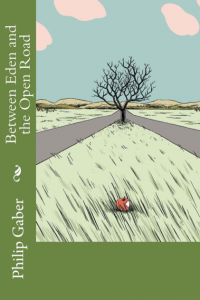
This is not quite a collection of shorts and not quite a poetry book – more a slice of modern psychology into the lonely hearts of those around us. Set on subways, in homeless shelters, whorehouses, streets, the cloying sense of being alive and flailing in doing so is steeped in these words throughout as we travel from short segments of first-person memoir, perusing and narrative from a man who cannot settle down.
“It’s about walking in a fog for forty-odd years of my life without knowing exactly what it is/I should be doing or which goals I should be/setting or what job I should be applying for or/what woman I should be spending/the rest of my life with”
There are many characters along the way – an escort whose sense of what a man should be stumbles suicidally through a jungle of dissatisfaction, as she picks men apart ” like a fruit salad”. Conversations with a homeless guy who knows literature, and a drug experience that ends up barren but somehow still worthwhile.
Visits to prostitutes, although seedy and empty, also ironically give the writer meaning in their emptiness,
“Even sad sex is better than no sex at all”
Romances on the edge of serious commitment wax and wane while others fall apart before they’ve begun – fleeting meetings and phone calls ruined by the wrong turn of phrase or bad timing. The writer pushes himself to conform, but ends up doing the wrong thing anyway.
Wonderful anecdotes line these pages: snippets of color, texture, sound, voices – and a sense of a city life. A memory of school, a mediocre music teacher, ridiculed for not knowing who Leonard Cohen is, locks his students out of the classroom,
“So we all went outside to smoke cigarettes and/take turns reading passages from Leonard Cohen’s/ “Beautiful Losers”/while Mr O’Leary slept in his office,/stuck with a modest array of talent.”
This is a detailed feast of language, focused on character and relationships – relationships with not only each other, but with hopes, fears and the environment in which the writer exists. Once one gets into the pace of the work, which hops gracefully from two-page vignettes into maybe only a few lines of poetry or prose and back again, the meat of the work starts calling to you hard – I read this book in one sitting, and every word was enriching and glued me to read on. There’s no story as such here, but that hardly matters. That’s not the point. This is a scrapbook of a life lived on the edge of somewhere, maybe “between Eden and the open road”.
It is not very often a book like this comes along to SPR, but when it does, as a reviewer I relish it. Descriptions are measured, erudite, rotund and bitter. Characters are distant yet tend to grapple with the most intimate corners of the mind. The city seeps in and corrupts every dream and thought with the vast and barren streets as the writer conveys in a way not unlike Selby’s Requiem For A Dream, or Ginsberg (maybe “A Supermarket in California” period).
I love the little crumbs of literary reference, and the posturing in a pool of narcissism and self-deprecation the narrator tends towards. I love the touch of his identity – maybe Jewish New Yorker (I’m married to one and recognize the symptoms), addictive, non- conformist, wannabe rebel. I adore the dialogue and the way characters offend each other at the same time as inspiring love or lust or sadness. By breaking away from the expected structure of book writing, Gaber has pulled off a most accomplished work of fiction which I shall be delving into again and again for little hits of writerly goodness. A truly post – postmodern American book from a talented and clearly confident author. Highly recommended.
Links
Amazon
Barnes & Noble
Get an Editorial Review | Get Amazon Sales & Reviews | Get Edited | Get Beta Readers | Enter the SPR Book Awards | Other Marketing Services






















Leave A Comment